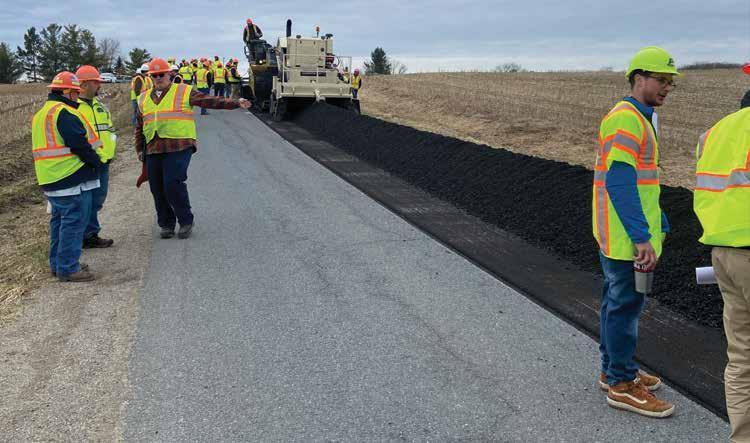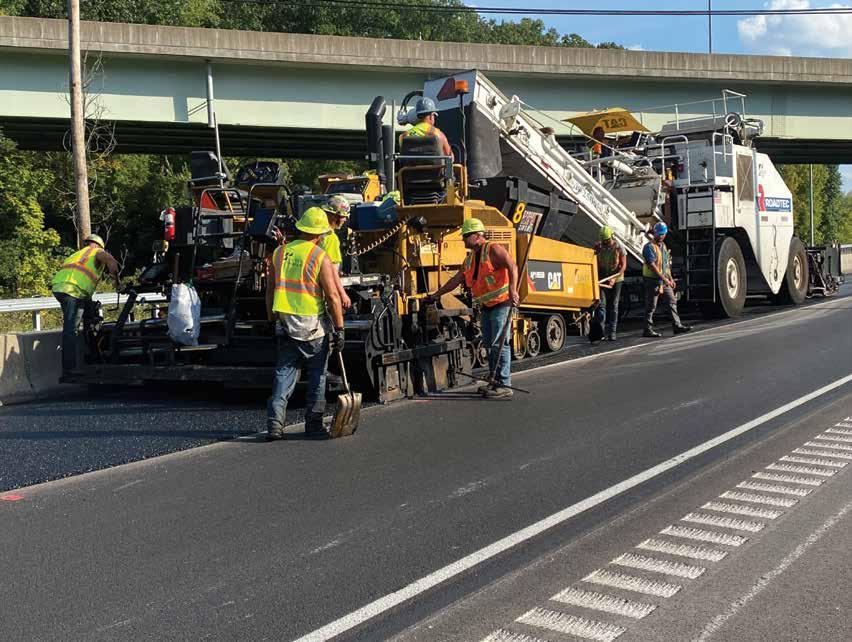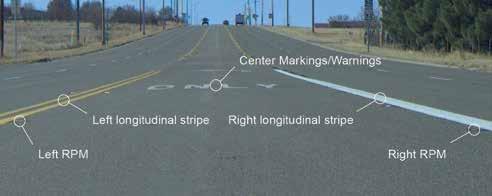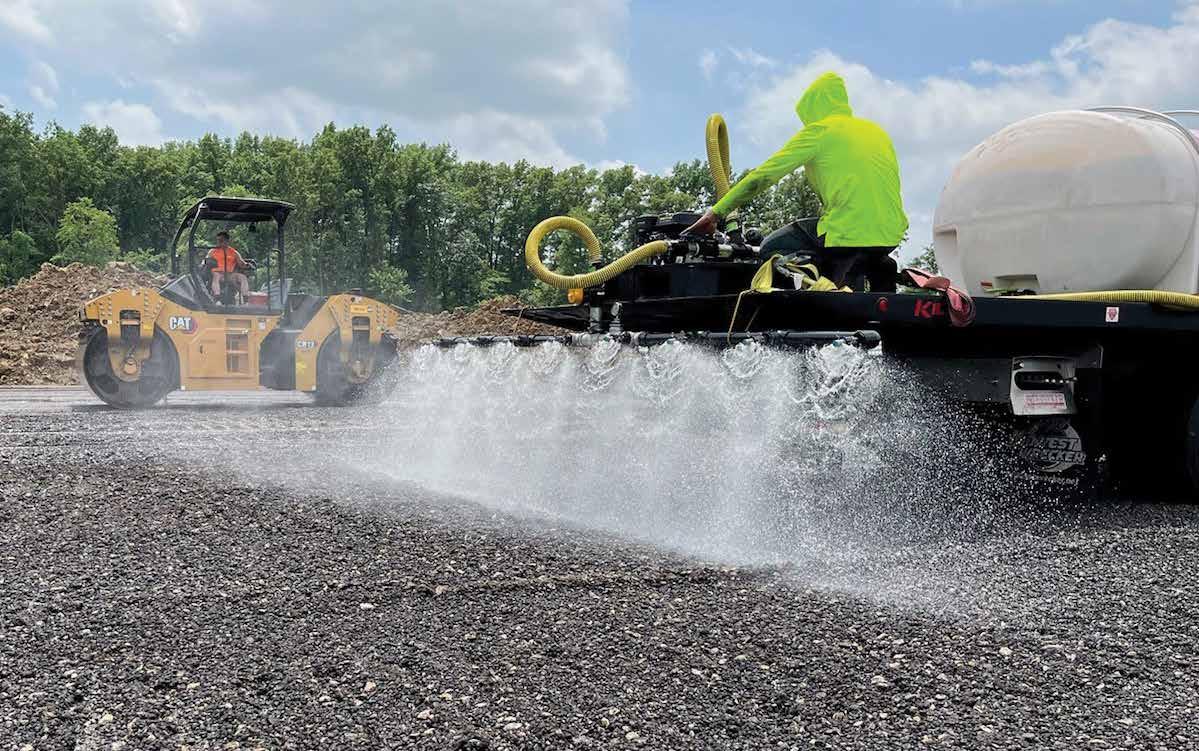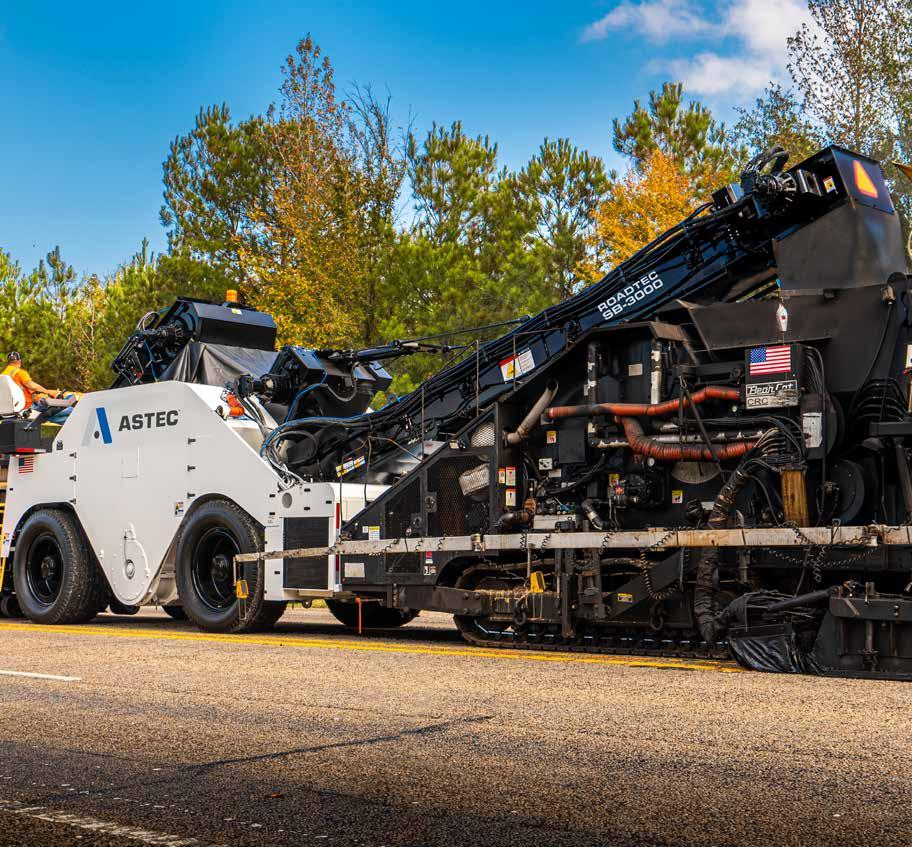
2 minute read
FDOT Launches Statewide Lane Closure Notification System Pilot
BY SARAH REDOHL
In August 2022, the Florida Department of Transportation launched a one-year statewide technology pilot program with a new Lane Closure Notification System (LCNS)—the first of its kind in North America, according to FDOT—in partnership with the Florida Transportation Builders Association and one.network.
The LCNS aims to notify the traveling public of work zones through leading GPS apps and services in the same way they receive other alerts, like accidents ahead and upcoming congestion.
A soft launch of the LCNS technology was successfully kicked off in June, and there were several construction projects entered into the system upon launch. FDOT Executive Director of Transportation Technology Trey Tillander said the number of construction lane closures entered and reported in the LCNS will increase each month.
In the next few months, the LCNS will be rolled out to include more than 500 construction projects and, ultimately, the one-year pilot will cover all planned construction sites across more than

Photo courtesy of pixabay.com/users/embinmt-3346480
12,000 miles of state roads in FDOT’s seven regional districts and Florida’s Turnpike Enterprise.
“Improving work zone safety and mobility is a critical focus area for FDOT,” Tillander said. “One way to improve work zone safety is to alert drivers of closed lanes, reduced speed limit, and presence of workers in work zones so that drivers can prepare to slow down before entering work zones and drive more carefully as they navigate through the work zone.” He said the notifications may also increase safety within work zones by making drivers aware of expected delays, which might encourage them to choose an alternative route.
According to Tillander, construction supervisors on the road worksite input the lane closure information into one.network’s LiveLink smartphone application, including the number of lanes closed (direction and specific lane numbers), reduced speed limit (if implemented), worker presence, and detour information (if implemented).
“The contractor activates the lane closure when the cones or barrels are placed,” he said.
The information is then shared with third-party navigation app providers like Google Maps, Waze, TomTom and Apple Maps, which publish the data to motorists via their smartphone or in-vehicle devices. Waze was currently sharing notifications with their users as of press time while other providers were expected to begin sharing in the near future.
“There is no significant change in the way contractors work on roads in the state of Florida due to this project,” Tillander said, except inputting the data into LiveLink as they close or open lanes. However, before supervisors are allowed to do so, they are required to complete a one-time training and pass a short quiz. FDOT has already initiated this training for the staff and contractors who will use the LiveLink application.
Although Florida is the first state in the United States to introduce this safety technology, it is unlikely to be the last. Already, the State of Texas has requested information about this initiative, Tillander said.
BUILT TO CONNECT
Power and Portability
Our portable plant configurations feature a variety of components including jaw crushers, cone crushers, impact crushers and a variety of screening plants. Without sacrificing power or productivity, portable options deliver efficient and reliable performance with extra portability and adaptability.



